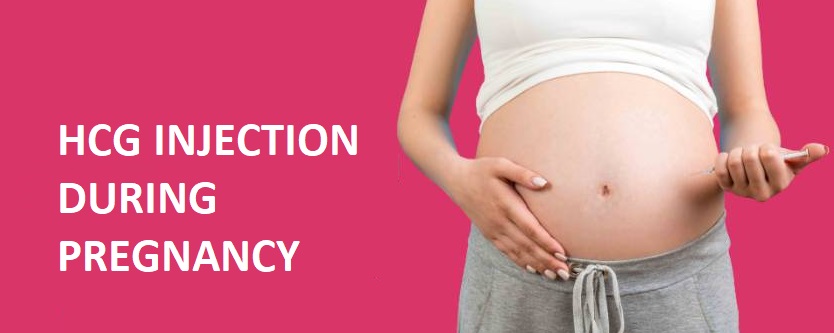
HCG Injection has human gonadotropin hormone that helps to treat infertility in women.
Even though HCG is effective in most fertility treatments, its rate of success depends on the health of people trying to get pregnant and the ART procedure they are doing.
"Every situation is different, and I strongly suggest that everyone talk to a reproductive endocrinologist about their best options," "A good doctor will be able to talk to you about all of your options HCG injection in pregnancy
Human chorionic gonadotropin (HCG) is a hormone produced early in pregnancy and then by the placenta later on. In some fertility treatments, HCG injections make an egg mature and move out of the ovary so that it is cut or implanted inside the uterus.
HCG helps keep progesterone levels high, which is important for the pregnancy to go well. It is also the hormone that pregnancy tests for urine and blood look for.
This article talks about how HCG injections can help people get pregnant. It also talks about how to take HCG and when.
Human Chorionic Gonadotropin is the name of the hormone made by the placenta after the sperm gets in the ovary (HCG).
HCG does two things. First, it helps the egg in the ovary grow as it should. Second, it pushes eggs out of the ovary during ovulation.
HCG is called the "pregnancy hormone" because it is present in the blood and urine of a woman a few days after she gives birth. To find out if a woman is pregnant, doctors do urine and blood tests.
However, a pregnant woman doesn't usually get HCG injections unless she needs them. The body of a pregnant woman needs a lot of HCG to help keep the pregnancy going and keep it healthy. So, women who have low levels of HCG take HCG injections to keep the pregnancy going. This can help women who keep losing their babies during pregnancy because the embryo doesn't stick to the wall of the uterus. As a way to treat infertility, HCG injections are given before pregnancy.
In some cases of recurrent pregnancy loss (RPL), which could be because the embryo didn't stick to the wall of the uterus, women take HCG injections. In some women, the fetal placental unit may not make enough HCG hormone. This can cause not enough progesterone to be made, which can lead to the death of the embryo. So, the pregnancy could be kept going with the help of HCG supplements.
Before pregnancy, the HCG hormone makes the corpus luteum of the ovary make more progesterone. This makes more gonadal steroid hormones (5). Also, because HCG is the same as luteinizing hormone (LH) from the pituitary, HCG supplements could be used instead of LH to cause ovulation and help the ovarian follicle grow and mature.
During a healthy pregnancy, the placenta releases HCG, which helps keep the corpus luteum healthy and helps make estrogen and progesterone, which are good for the pregnancy. So, the supplements try to make the same things happen.
However, in some cases, the HCG shot could help keep the pregnancy going, but that doesn't mean that anyone can use it.
The US Food and Drug Administration (FDA) put these HCG injections in "pregnancy category C." This means that studies on animals have shown harmful effects on the fetus, and there are no controlled studies on humans.
Your doctor might give you an HCG injection if the benefits are more important than the risks. Most of the time, women who have trouble getting pregnant take injections during the early stages of pregnancy. So, it's best to talk to your doctor and do what he or she says.
Dr. says that HCG is safe and works well to increase fertility. Most side effects are mild, like pain where you got the shot.
Ovarian Hyperstimulation Syndrome (OHSS): OHSS can happen very rarely when HCG acts as a trigger shot. When women use ovarian stimulating drugs, this condition is marked by swollen ovaries, which can cause pain in the abdomen and make a person feel sick. Up to 20% of ART cycles have a mild form of OHSS, while less than 2% of cycles have a more serious form of OHSS.
Ectopic pregnancy and twisted ovaries: Using HCG can increase the risk of ectopic pregnancy and adnexal torsion or twisted ovaries. Both are serious conditions that may need surgery.
Even though these side effects may seem scary, the overall risk of problems from using fertility drugs with hCG is low.
Also, it's important to know that taking HCG can make a pregnancy test show a false positive. Since hCG can stay in your body for up to 7 days, you should wait 14 days before taking a home pregnancy test.
When you take it with other medicines or health conditions, HCG shots can have a bad effect. You may need to change the dose of your HCG shot if any of the following happen:
HCG is a hormone that happens naturally during pregnancy. Because it acts like LH, which causes ovulation in women and more testosterone in men, it can help the 15% of US couples who can't get pregnant after a year of trying.
Secure, direct ordering: no middlemen, straight from the manufacturer!.
Bin Jarish building,
Deira Dubai, UAE
infovcarepharmacy@gmail.com
+1-614 (887) 8957
DISCLAIMER: This Site Is Not Intended To Provide Diagnosis, Treatment Or Medical Advice. Products, Services, Information And Other Content Provided On This Site, Including Information That May Be Provided On This Site Directly Or By Linking To Third-Party Websites Are Provided For Informational Purposes Only. Please Consult With A Physician Or Other Healthcare Professional Regarding Any Medical Or Health Related Diagnosis Or Treatment Options. The Results From The Products May Vary From Person To Person. Images shown here are for representation only, actual product may differ.
Copyright © v-carepharmacy. All Rights Reserved.